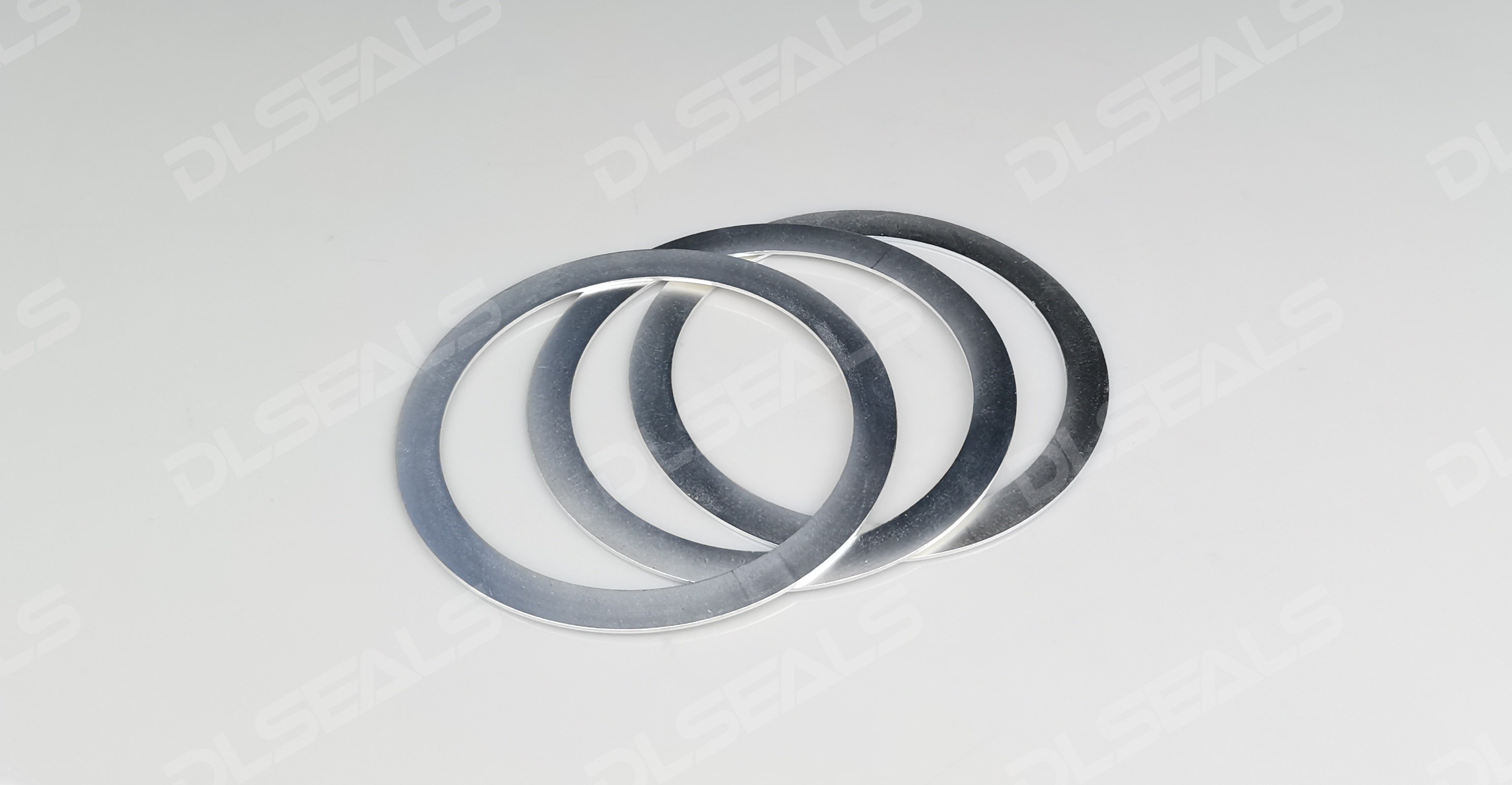
As an important component of industrial seals, metal gaskets play a key role in various mechanical equipment and piping systems. Their excellent high temperature resistance, high pressure resistance and corrosion resistance make them widely used in various extreme working conditions. This article will explore the material selection, design considerations, performance characteristics and application scenarios of metal gaskets in depth to help readers better understand and choose suitable metal gaskets.
1. Material selection
The material selection of metal gaskets needs to comprehensively consider high temperature resistance, high pressure resistance, corrosion resistance and other properties. Common metal materials and their characteristics are as follows:
Copper gaskets: have good thermal conductivity and corrosion resistance, suitable for general working conditions, but limited pressure resistance and temperature resistance.
Aluminum gaskets: light and corrosion-resistant, suitable for light equipment and low-pressure environments, but insufficient performance in high-pressure and high-temperature environments.
Stainless steel gaskets: excellent high temperature resistance, high pressure resistance and corrosion resistance, suitable for most industrial environments, especially petrochemical and chemical industries.
Nickel and nickel alloy gaskets: have excellent corrosion resistance, suitable for extreme corrosive environments such as strong acids and alkalis.
Titanium gasket: Lightweight, excellent corrosion resistance, especially suitable for seawater environment and high temperature and high pressure environment.
2. Design considerations
The design of metal gaskets needs to consider multiple factors to ensure its stability and reliability under various working conditions.
2.1 Shape and size
The shape and size of the metal gasket need to be precisely matched according to the shape and size of the sealing surface. Common shapes include round, square and oval, and the size needs to be customized according to the actual application.
2.2 Surface treatment
The surface treatment of metal gaskets has an important influence on the sealing performance. Common surface treatment methods include:
Polishing: Improve the surface finish and reduce friction and wear.
Coating: Such as PTFE coating, improve corrosion resistance and sealing performance.
Electroplating: Such as nickel plating, improve corrosion resistance and conductivity.
2.3 Fastening design
The fastening design of metal gaskets needs to ensure a tight connection between the sealing surfaces to prevent loosening. Common fastening methods include bolt fastening and lock ring fastening. The fastening force needs to be evenly distributed to avoid local stress concentration.
3. Performance characteristics
Metal washers have the following performance characteristics due to their excellent material properties:
High temperature resistance: Metal washers can work stably for a long time in high temperature environments, usually with a temperature resistance range of 200℃ to 600℃.
High pressure resistance: Metal washers can withstand high working pressures, usually with a pressure resistance of more than 10MPa.
Corrosion resistance: Metal washers can resist corrosion from most chemical media, ensuring long-term use.
Mechanical strength: Metal washers have high strength and good fatigue resistance, suitable for high-stress environments.
4. Application scenarios
Metal washers are widely used in multiple industrial fields due to their excellent performance and diverse material selection.
4.1 Petrochemical industry
Metal washers in the petrochemical industry are used to seal high-temperature and high-pressure pipelines and equipment to ensure leak-free flow. Stainless steel and nickel alloy washers are the first choice in the petrochemical industry due to their corrosion resistance.
4.2 Chemical industry
Metal washers in the chemical industry are used to seal corrosive media such as strong acids and alkalis. Nickel and nickel alloy washers and titanium washers are widely used in the chemical industry due to their excellent corrosion resistance.
4.3 Power Industry
Metal washers in the power industry are used to seal high-pressure boilers and steam pipes. Stainless steel and copper washers are suitable for the power industry due to their high temperature and high pressure resistance.
4.4 Aerospace
In the aerospace field, metal washers are used to seal high-temperature and high-pressure engines and control systems. Titanium washers and nickel alloy washers are the first choice for aerospace materials due to their light weight and high corrosion resistance.
5. Selection and Use
The following points should be noted when selecting and using metal washers:
Matchability: Make sure that the selected metal washer model is completely matched with the sealing surface. Washers of different materials and sizes may have differences.
Installation process: The correct installation process is the key to ensure the performance of the metal washer, and it must be strictly operated in accordance with the installation instructions provided by the manufacturer.
Maintenance: Regularly check and replace metal washers to ensure that they are always in good working condition.
Conclusion
Metal washers are widely used in various extreme working conditions due to their excellent high temperature, high pressure and corrosion resistance. Through scientific and reasonable material selection and design, the performance and reliability of metal washers can be significantly improved to meet the needs of different types of equipment and application scenarios. With the continuous development of new materials and technologies, the performance and application of metal washers will continue to improve, ensuring that the equipment achieves the best balance between high performance and reliability.
Post time: Dec-03-2024
